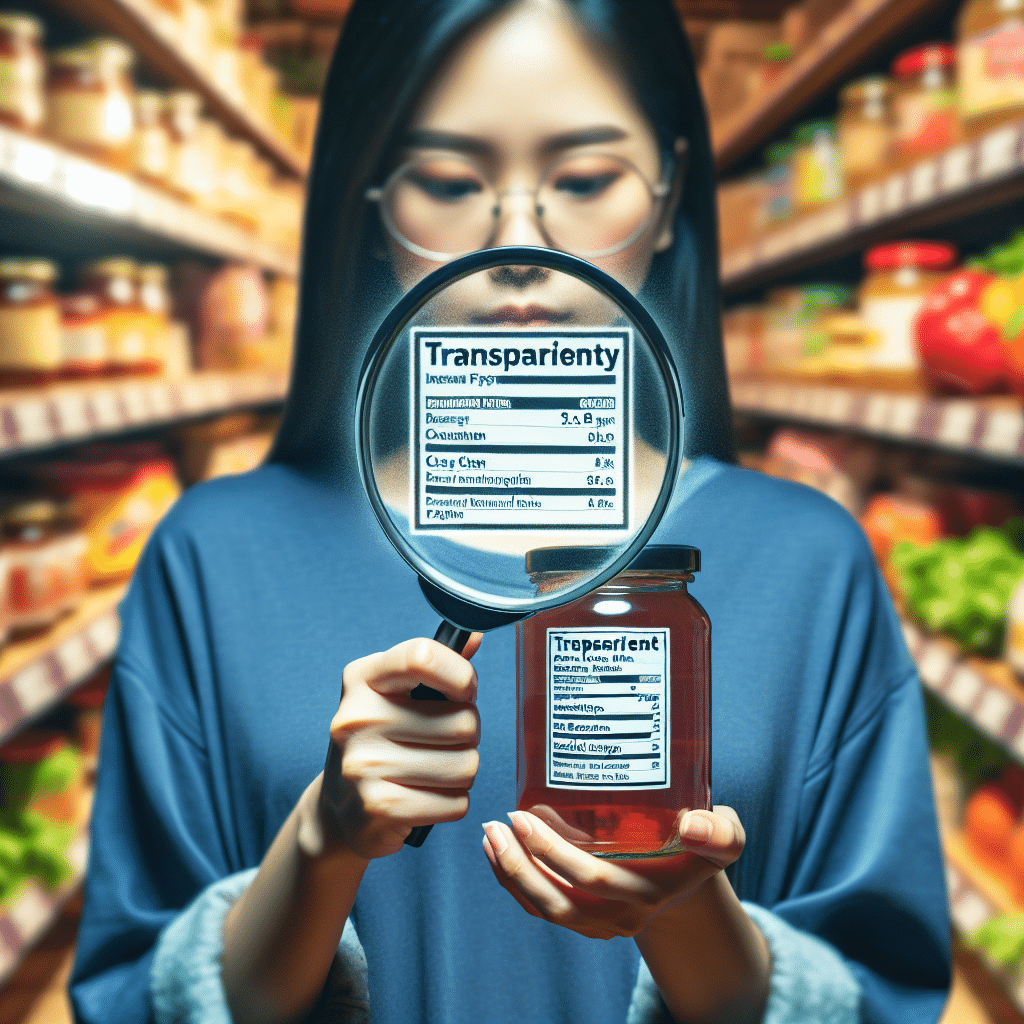Transparency in Food Labeling: A Consumer’s Right
-
Table of Contents
- Transparency in Food Labeling: Ensuring Consumer Rights
- The Importance of Transparent Food Labeling
- Current State of Food Labeling Practices
- Case Studies and Examples
- Challenges in Achieving Transparency
- Consumer Advocacy and Legislation
- Legislative Success Stories
- How Consumers Can Advocate for Transparency
- Conclusion: The Right to Know
- Discover ETprotein’s Commitment to Quality and Transparency
Transparency in Food Labeling: Ensuring Consumer Rights

Food labeling is a critical aspect of the food industry that directly impacts consumer health, safety, and the right to make informed choices. With the increasing demand for transparency in all sectors, the food industry is no exception. Consumers are more health-conscious than ever and are demanding clear, honest, and comprehensive information about the products they consume. This article delves into the importance of transparency in food labeling, the current state of labeling practices, and the consumer’s right to know what’s in their food.
The Importance of Transparent Food Labeling
Transparent food labeling is not just a preference; it’s a necessity for several reasons:
- Health and Safety: Knowing the ingredients and nutritional content helps consumers avoid allergens and substances that could cause adverse health effects.
- Dietary Needs: For those with specific dietary requirements, such as vegetarians, vegans, or those with religious dietary restrictions, clear labeling is essential.
- Informed Choices: Consumers have the right to know where their food comes from, how it’s produced, and its environmental impact, enabling them to make choices that align with their values.
Current State of Food Labeling Practices
The food labeling landscape is a patchwork of regulations and practices that vary by country and region. While some countries have stringent labeling laws, others have more lenient requirements, leading to a lack of consistency in the information provided to consumers.
Case Studies and Examples
For instance, the European Union has comprehensive labeling requirements that include allergen information, nutritional values, and the origin of certain ingredients. In contrast, the United States requires nutritional labeling on most packaged foods but has been slower to mandate GMO labeling, which is a contentious issue among consumers and advocacy groups.
Statistics show that a significant percentage of consumers want more information on their food labels. According to a survey by the International Food Information Council Foundation, over 60% of consumers value seeing the entire ingredient list and the nutrition facts panel on food packaging.
Challenges in Achieving Transparency
Despite the demand for more transparent labeling, several challenges persist:
- Complex Supply Chains: The global nature of food supply chains can make it difficult to trace the origin and handling of every ingredient.
- Regulatory Differences: Varying international regulations can lead to inconsistencies in labeling standards and enforcement.
- Proprietary Information: Some manufacturers argue that revealing too much information can compromise trade secrets or proprietary formulations.
Consumer Advocacy and Legislation
Consumer advocacy groups play a pivotal role in pushing for more transparent labeling. Campaigns and petitions have led to legislative changes, such as the requirement for GMO labeling in certain jurisdictions. Additionally, some companies have voluntarily adopted more transparent practices in response to consumer demand, even in the absence of legal requirements.
Legislative Success Stories
One notable success is the implementation of the Nutrition Labeling and Education Act (NLEA) in the United States, which standardized nutrition facts panels on packaged foods. Another example is the EU’s Farm to Fork Strategy, which aims to make food systems more sustainable and ensures that consumers have access to healthy food and clear information about its origin and nutritional content.
How Consumers Can Advocate for Transparency
Consumers have several tools at their disposal to advocate for clearer food labeling:
- Supporting Legislation: Voting for and supporting policies that promote labeling transparency.
- Choosing Transparent Brands: Purchasing from companies that provide comprehensive product information.
- Voicing Concerns: Contacting manufacturers and retailers to request more detailed labeling.
Conclusion: The Right to Know
Transparency in food labeling is not just a trend; it’s a fundamental consumer right. The ability to access complete and accurate information about food products empowers consumers to make healthier and more ethical choices. While progress has been made, there is still work to be done to ensure that all consumers can exercise this right fully. It is the responsibility of governments, industry players, and consumers themselves to continue advocating for transparent food labeling practices that protect and inform the public.
Discover ETprotein’s Commitment to Quality and Transparency
In line with the values of transparency and quality, ETprotein is dedicated to providing consumers with high-quality plant-based protein products. Their commitment to non-GMO, allergen-free ingredients ensures that consumers can trust the purity and safety of their offerings. ETprotein’s range of organic rice protein, pea protein, and other plant-based proteins cater to a variety of dietary needs and preferences, making them a reliable choice for those seeking transparent and ethical food sources.
About ETprotein:
ETprotein, a reputable plant protein vegan protein Chinese factory manufacturer and supplier, is renowned for producing, stocking, exporting, and delivering the highest quality organic bulk vegan protein and plant proteins. They include Organic rice protein, clear rice protein, pea protein, clear pea protein, watermelon seed protein, pumpkin seed protein, sunflower seed protein, mung bean protein, peanut protein etc. Their offerings, characterized by a neutral taste, non-GMO, allergen-free attributes, cater to a diverse range of industries. They serve nutraceutical, pharmaceutical, cosmeceutical, veterinary, as well as food and beverage finished product distributors, traders, and manufacturers across Europe, USA, Canada, Australia, Thailand, Japan, Korea, Brazil, and Chile, among others.
ETprotein specialization includes exporting and delivering tailor-made protein powder and finished nutritional supplements. Their extensive product range covers sectors like Food and Beverage, Sports Nutrition, Weight Management, Dietary Supplements, Health and Wellness Products, and Infant Formula, ensuring comprehensive solutions to meet all your protein needs.
As a trusted company by leading global food and beverage brands and Fortune 500 companies, ETprotein reinforces China’s reputation in the global arena. For more information or to sample their products, please contact them and email sales(at)ETprotein.com today.












